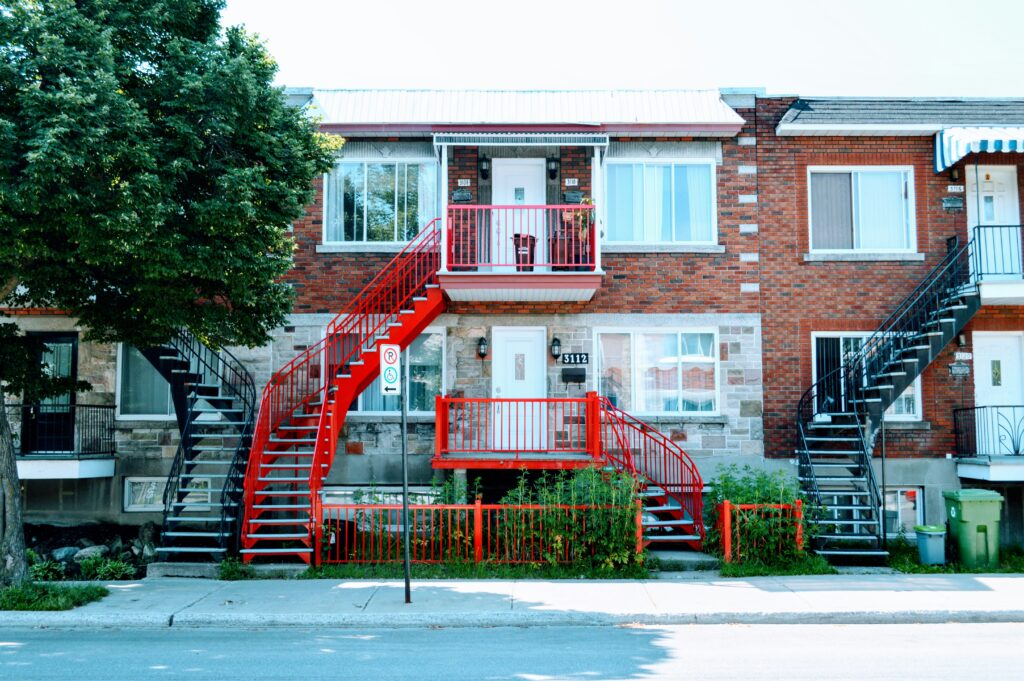
Tenancy in Common Vs Joint Tenancy: How it Affects Your House Sale
Selling a house is stressful enough, but when you’re also dealing with a separation, divorce, or joint ownership, things can get even more complex. One key factor that can affect how smoothly and quickly the sale progresses is whether you’re registered as joint tenants or tenants in common.
In this blog, we break down the differences between tenants in common vs joint tenants and how each impacts your rights, responsibilities, and share of the sale proceeds.
What does joint tenancy mean when selling a house?
When you’re listed as joint tenants, it means you each own the entire property together – 100% each, not 50/50. This arrangement is most common among married couples and long-term partners and is registered with the Land Registry.
Key features of being joint tenants:
- Equal ownership regardless of financial contribution
- The right of survivorship applies – your share automatically goes to the other owner upon your death
- The property cannot be sold without mutual agreement
- Sales proceeds are split equally, even if one person paid more
Even if you covered the entire deposit or paid more towards the mortgage, as joint tenants, the law still treats ownership as fully shared. This can affect your entitlement if you later decide to sell.
What does tenants in common mean for a house sale?
If you’re registered as tenants in common, each party owns a specific share of the property, often in unequal amounts. For example, one owner might hold 70%, while the other holds 30%. This structure is popular among friends, family members, and couples contributing unequally to a purchase.
Key features of tenants in common:
- Ownership is split by percentage (e.g., 60/40 or 70/30)
- No right of survivorship – your share passes on via your will
- Owners can sell or transfer their share independently
- Proceeds from a sale are divided according to each person’s ownership stake
If you don’t have a deed of trust (also known as a declaration of trust), the law may assume equal ownership, even if that’s not the financial reality.
Can joint tenants sell a house without agreement?
Not usually. As joint tenants, both parties must agree to list the property for sale or accept a cash offer. Even though both people have equal ownership, you’ll need to reach a consensus before selling.
What if one joint tenant passes away?
The surviving owner automatically inherits the property due to the right of survivorship. This simplifies the process legally and avoids probate delays, but also means the deceased’s share can’t be passed to anyone else in a will.
Can tenants in common sell without agreement?
Yes, this is one of the key benefits of being tenants in common. You can sell your individual share without needing permission from the other owners. However, this flexibility can also create complications.
Why a deed of trust matters
A deed of trust outlines how the ownership is divided and how the sale proceeds should be split. Without it, disputes can arise, particularly if one party claims to have invested more.
For example, a couple own a property 70/30 as tenants in common. If they sell without a deed of trust, the law may force them to split the proceeds 50/50, resulting in financial injustice.
How are house sale proceeds divided between joint tenants and tenants in common?
For joint tenants:
- The sale proceeds are always split 50/50
- Financial contributions don’t affect distribution
- The mortgage is repaid first, and the remaining equity is shared equally
For tenants in common:
- The sale proceeds are divided based on each person’s ownership share
- A deed of trust provides legal clarity
- No assumptions of equal ownership apply
If you’re trying to navigate a house sale, knowing whether you are joint tenants or tenants in common is essential for financial and legal clarity.
Can you switch between tenants in common and joint tenants?
Yes, you can move between both ownership types depending on your circumstances.
How to sever a joint tenancy:
You can serve a Notice of Severance to switch from being joint tenants to tenants in common. This is often done before or during a separation or divorce to protect financial interests.
- You do not need permission from the other owner to make the change
- You must register the change with HM Land Registry
- It’s advisable to seek legal advice before proceeding
Can you switch back to joint tenants?
Yes, but all co-owners must agree to revert to joint tenancies. This makes it harder to return to joint status than it is to sever it.
Joint tenants or tenants in common: Which is best for you?
Whether you’re buying a home or preparing to sell, choosing the right ownership type is important. Here’s how to decide:
Choose joint tenants if:
- You’re a couple and want equal rights and proceeds
- You want the property to automatically go to your partner if you pass away
- You’re financially contributing equally
Choose tenants in common if:
- One person has contributed more to the deposit or mortgage
- You want control over who inherits your share
- You may want to sell your share independently in the future
Your solicitor or conveyancer can help you decide what’s right for your situation, but the choice between tenants in common vs joint tenants could significantly impact your property journey.
Need to sell fast? We buy any home regardless of ownership type
Whether you’re joint tenants or tenants in common, selling your home quickly can help you avoid financial and emotional stress, especially during a divorce or legal dispute.
If you are trying to sell your home and are finding the lengthy process is causing additional stress during an already difficult time, speak to us. We buy any house in any condition and can guarantee a sale in as little as seven days. This way you avoid the additional emotional turmoil and instead focus on moving on. Get a free cash offer today and start the fast sales process today.
FAQs: Tenants in Common vs Joint Tenants and House Sales
What’s the difference between tenants in common vs joint tenants?
Can joint tenants sell a house without agreement?
Can tenants in common sell without the other’s permission?
How are house sale proceeds split?
• Tenants in common: Proceeds are divided according to ownership shares.


